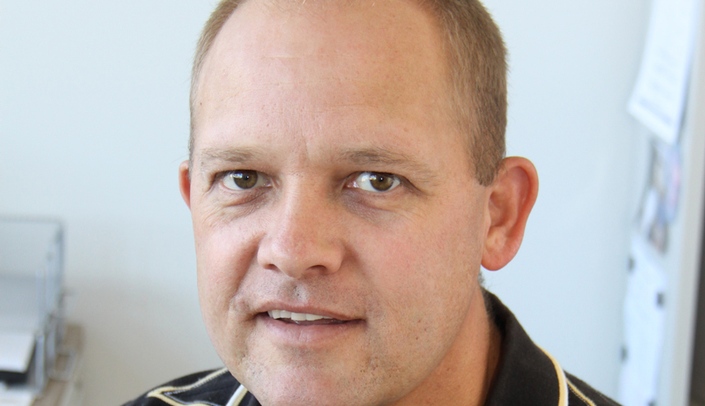Since joining the Nebraska INBRE program as a mentoring institution a high percentage of students from Wayne State College have gone on to pursue doctoral degrees.
"We provide the training wheels, and INBRE takes them off," said Doug Christensen, Ph.D., a professor of biology at Wayne State College and steering committee member with the Nebraska INBRE program.
Wayne State College has two ongoing research lines in vaccine development and another one on drug delivery, Dr. Christensen said. Students often get involved in these projects in addition to continuing the projects they bring back from their summer experience.
And, because faculty don’t compete for INBRE funding they have more time to focus on teaching and mentoring.
Dr. Christensen said he is afforded the opportunity to teach both semesters — molecular genetics in the fall and microbiology in the spring — as well as mentor INBRE students.
The effort is paying off, he said, as more than 15 students have gone on to graduate school.
Dr. Christensen attributes this success to the confidence instilled in the students during their time at Wayne State.
"Our main priority is to make sure the students have a good experience with their first research experience," he said.
And because both the faculty and students aren’t under the pressure to have journal articles published, it creates a more relaxed lab atmosphere in which the students are given more autonomy.
"We want the students to learn by doing and while we offer them guidance, we want them to make a lot of their own decisions, to do their own troubleshooting," Dr. Christensen said.
Sometimes it means the students’ experiments fail.
"To experience failure in the lab and learn how to overcome those obstacles is invaluable for undergraduate students," Dr. Christensen said. "It teaches them perseverance."
Both James Turpen, Ph.D., the former INBRE director and Paul Sorgen, Ph.D., the new director, support the mentoring designation because they recognize that this is what we do best, he said.
The success of the students is reflected in allowing each campus to do what they do best.
"They build on our strengths and this enriches our campus and students," he said.
